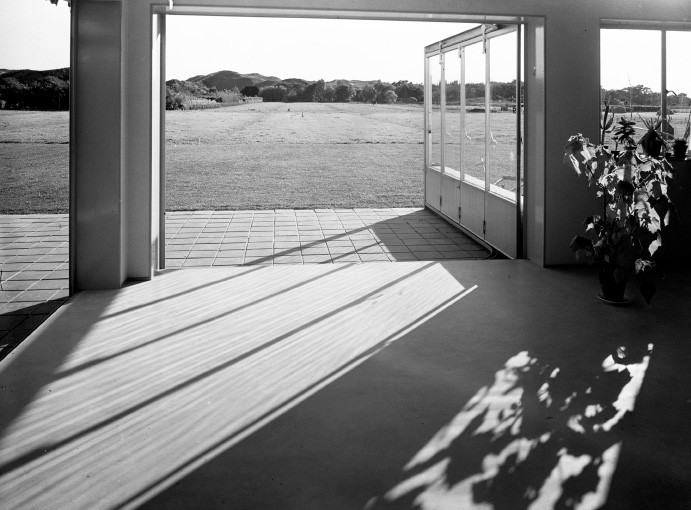Eva Besnyö
28 Oct 2011 - 27 Feb 2012
EVA BESNYÖ
Woman Photographer 1910–2003
Budapest – Berlin – Amsterdam
28 October, 2011 – 27 February, 2012
THE BERLINISCHE GALERIE PLAYS HOST TO DAS VERBORGENE MUSEUM
Eva Besnyö’s (1910-2003) photographic creed was oriented on the “New Vision” which Albert Renger-Patzsch had also propagated in his pioneering publication “It’s a Beautiful World” (Die Welt ist schön) in 1928. Having grown up in a bourgeois-Jewish family in Budapest, in 1928 she decided to complete her training in the modern photo studio run by Jozsef Pesci. She moved to Berlin in 1930, and the city of the avant-garde continued to influence her decisively throughout her life. It was here that Besnyö developed her photographic style and, like her Hungarian colleagues – including Moholy-Nagy, Kertesz, Nora Dumas, Ergy Landau and Capa –, she made a decisive contribution to new European photography.
In 1932 Besnyö left Berlin because she felt threatened by National Socialism. She succeeded in further developing her career in Amsterdam, where she survived German occupation and became a much sought-after photo journalist after the war. The modern aesthetics of the 1920s have always remained the yardstick of Eva Besnyö’s photography. This exhibition with 120 vintage prints will be the first retrospective of work by the Dutch Grande Dame of photography in Germany.
The exhibition and catalogue are being made possible with help from the Hauptstadtkulturfonds.
Woman Photographer 1910–2003
Budapest – Berlin – Amsterdam
28 October, 2011 – 27 February, 2012
THE BERLINISCHE GALERIE PLAYS HOST TO DAS VERBORGENE MUSEUM
Eva Besnyö’s (1910-2003) photographic creed was oriented on the “New Vision” which Albert Renger-Patzsch had also propagated in his pioneering publication “It’s a Beautiful World” (Die Welt ist schön) in 1928. Having grown up in a bourgeois-Jewish family in Budapest, in 1928 she decided to complete her training in the modern photo studio run by Jozsef Pesci. She moved to Berlin in 1930, and the city of the avant-garde continued to influence her decisively throughout her life. It was here that Besnyö developed her photographic style and, like her Hungarian colleagues – including Moholy-Nagy, Kertesz, Nora Dumas, Ergy Landau and Capa –, she made a decisive contribution to new European photography.
In 1932 Besnyö left Berlin because she felt threatened by National Socialism. She succeeded in further developing her career in Amsterdam, where she survived German occupation and became a much sought-after photo journalist after the war. The modern aesthetics of the 1920s have always remained the yardstick of Eva Besnyö’s photography. This exhibition with 120 vintage prints will be the first retrospective of work by the Dutch Grande Dame of photography in Germany.
The exhibition and catalogue are being made possible with help from the Hauptstadtkulturfonds.

